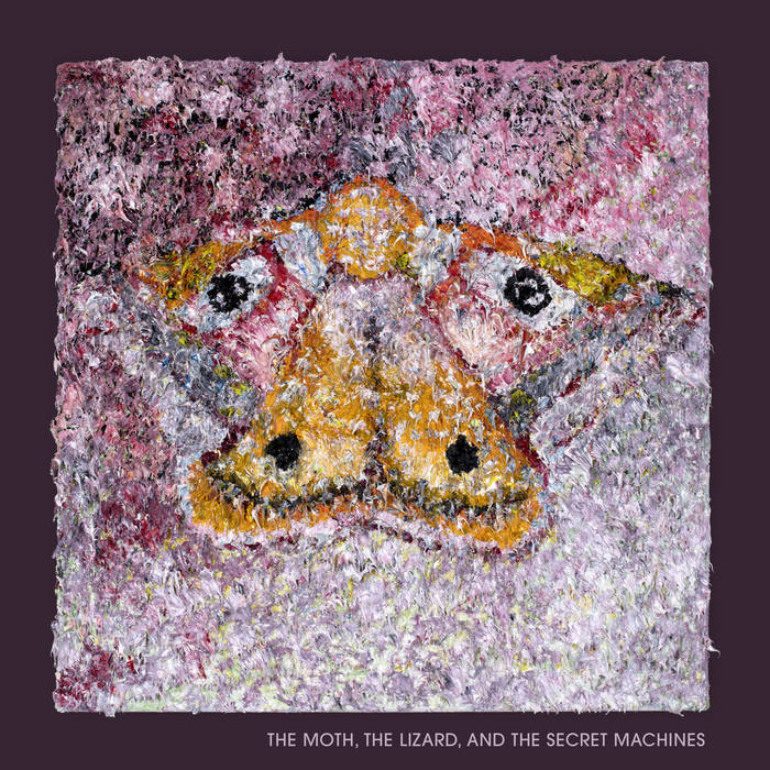

Secret Machines has returned with their newest release The Moth, the Lizard, And The Secret Machines. As a result of the album existing conceptually since around 2010, a portion of its tracks are previously unreleased singles recorded throughout the years prior. After reuniting, Brandon Curtis and Josh Garza began to work together again, thus the release of The Moth, the Lizard, and the Secret Machines, which has been dubbed a “lost record.”
The Moth, the Lizard, and the Secret Machines opens with “There’s No Starting Over,” an esoteric ode to the alternative sounds of the 1990s, starting out slowly, abruptly turning up the volume with the implementation of booming vocals. It’s an apt opening track for the band’s long-awaited return, especially as its vocals filled with reverb state, “You’ll never change your mind / Or will you?” and later, “What started now / Will never be over.” The outro of the track returns to the quiet, almost atonal sounds of its intro, which very skillfully sets the stage for the rest of the album.
The following track, “I Think It’s Light Outside” begins the same way, but instead, is a showcase of a captivating percussive hook–so much so that the vocals and accompanying sounds follow closely behind the drums, which lead with an intense reverb. The subsequent tracks, “You Want It Worse,” “Even Out the Overflow” and “Last One Out” are, while cohesive and integral parts of the album, a far cry from the overall tone of one of Secret Machines’ prior albums, Now Here is Nowhere, which is instead quick, more upbeat and guitar-heavy. The smoky reverb of each track in The Moth, the Lizard, and the Secret Machines is not unfamiliar, though, as it becomes somewhat of a signature of the album, with keyboard sounds joining it for a dreamlike timbre.
“Last One Out,” which marks the halfway point of the album, begins like a gentle hum, with the guitar playing slowly alongside the already-languid rhythm. The track is completely instrumental, and progresses in a way in which each instrument that has made an appearance thus far takes a moment in the spotlight to experiment. Strikingly, the outro of the track is dominated by lyrical chimes, which were previously unseen in prior tracks.
The final tracks of the album are more closely related to earlier releases of Secret Machines, with melodies that pair guitar and drums well enough that they’re captivating and stick, even throughout the seven-minute penultimate track “Run Out the Silver Light.” The tracks also have a greater speed and intensity than the beginning of the album; instead of the trance that it once elicited, the album shifts to a more traditional alternative rock experience.
The Moth, the Lizard, and the Secret Machines’ final track, “The Finalizer” joins all of these elements into another reverb-filled dream, but with new twists: the vocals are hazy and the instrumentals are heard more clearly, carrying the vocals in their own individual rhythm and melody. The track confirms the idea that Secret Machines is aware of its existence and history, both musically and personally–“The Finalizer” could be paired with “There’s No Starting Over” or “The Answer,” and it would be incredibly evident that they are cut from the same cloth. Lastly, its lyrics, which were not originally a focal point, are impactful as the words, “This could be / This could be the finalizer,” are repeated as the album comes to an end.
